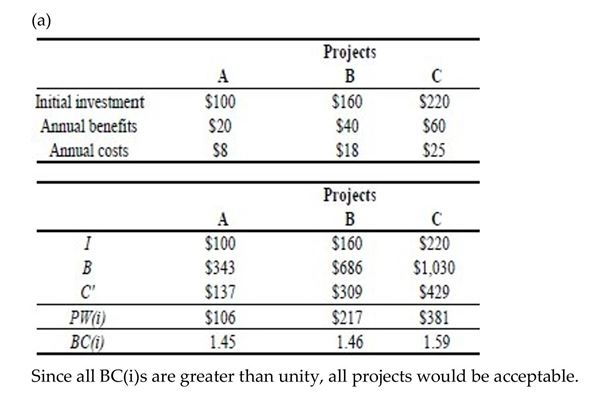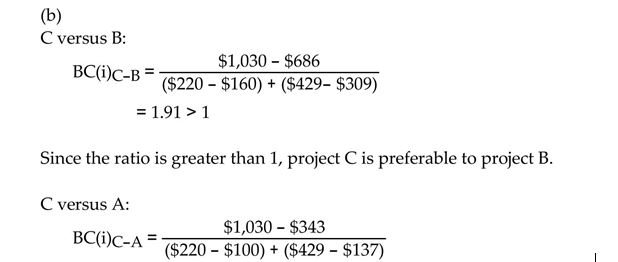Deck 16: Economic Analysis in the Service Sector
Question
Question
Question

Unlock Deck
Sign up to unlock the cards in this deck!
Unlock Deck
Unlock Deck
1/3
Play
Full screen (f)
Deck 16: Economic Analysis in the Service Sector
A city government is considering increasing the capacity of the current wastewater treatment plant. The
estimated financial data for the project are as follows: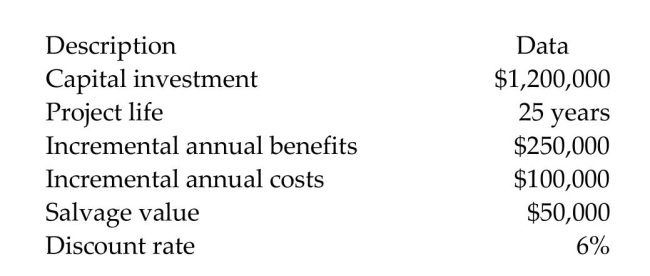 Calculate the benefit-cost ratio for this capacity expansion project.
Calculate the benefit-cost ratio for this capacity expansion project.
estimated financial data for the project are as follows:
 Calculate the benefit-cost ratio for this capacity expansion project.
Calculate the benefit-cost ratio for this capacity expansion project.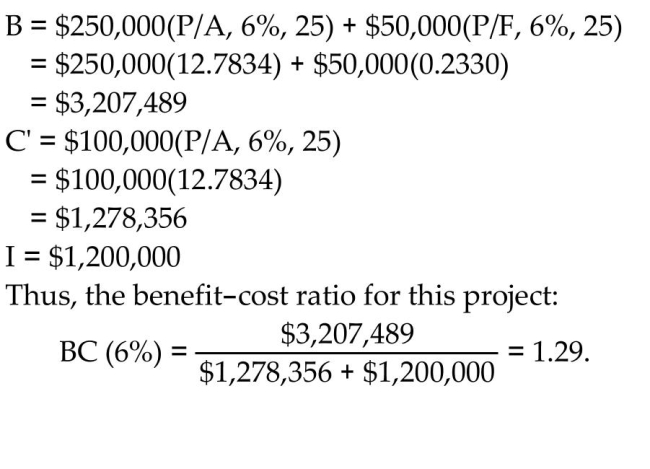
A local government is considering promoting tourism in the city. It will cost $5,000 to develop the plan. The
anticipated annual benefits and costs are as follows:
· Annual benefits: Increased local income and tax collections $117,400
· Annual support service: parking lot expansion, rest room, patrol car, and street repair $48,830
If the city government uses a discount rate of 6% and a study period of 5 years, is this tourism project justifiable
according to the benefit-cost analysis?
anticipated annual benefits and costs are as follows:
· Annual benefits: Increased local income and tax collections $117,400
· Annual support service: parking lot expansion, rest room, patrol car, and street repair $48,830
If the city government uses a discount rate of 6% and a study period of 5 years, is this tourism project justifiable
according to the benefit-cost analysis?
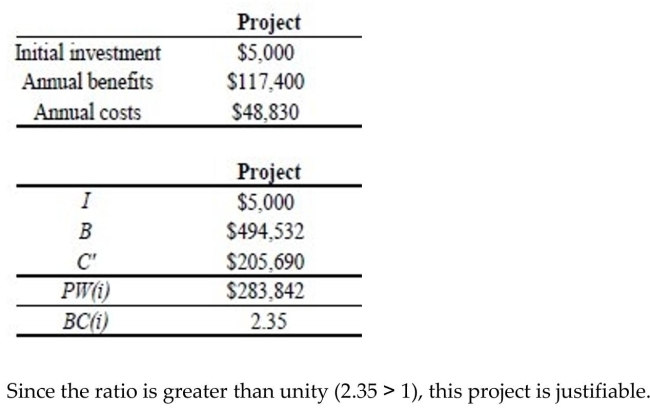
The U.S. Department of Interior is planning to build a dam and construct a hydroelectric power plant. In
addition to producing electric power, this project will provide flood control, irrigation, and recreational
benefits. The estimated benefits and costs expected to be derived from the three alternatives under
consideration are listed as follows: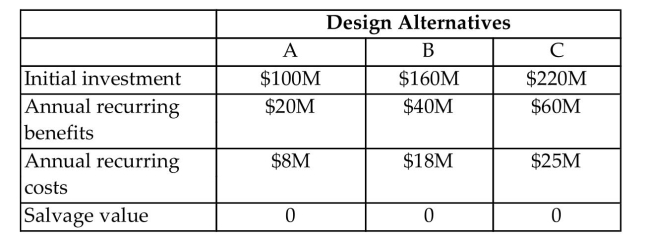 The interest rate is 5%, and the life of each project is estimated to be 40 years.
The interest rate is 5%, and the life of each project is estimated to be 40 years.
(a) Find the benefit-cost ratio for each alternative.
(b) Select the best alternative, according to BC(i).
addition to producing electric power, this project will provide flood control, irrigation, and recreational
benefits. The estimated benefits and costs expected to be derived from the three alternatives under
consideration are listed as follows:
 The interest rate is 5%, and the life of each project is estimated to be 40 years.
The interest rate is 5%, and the life of each project is estimated to be 40 years.(a) Find the benefit-cost ratio for each alternative.
(b) Select the best alternative, according to BC(i).
